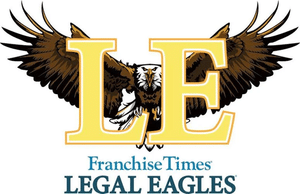During the year, if you need to make a “material change” to your FDD, we must then amend the document and issue an amended FDD. Some examples of a material change, as used in section 683.9 of the General Business Law, includes but is not limited to:
- A change in the franchise fees charged by the franchisor
- Increased royalties
- Litigation or serious threats of litigation
- Change in your management team
- Sale of your system
- Changes in the business model or cost structure for your franchisees
- A purchase by the franchisor in excess of five percent of its existing franchises during six consecutive months
- Any significant adverse change in the business condition of the franchisor or in any of the following:
- The obligations of the franchisee to purchase items from the franchisor or its designated sources
- Limitations or restrictions on the goods or services which the franchisee may offer to its customers
- The obligations to be performed by the franchisor
- The franchise contract or agreements, including amendments thereto
- The franchisor’s accounting system resulting in a five percent or greater change in its net profit or loss in any six-month period
- The service, product or model line.
- Audited financial statements of the preceding fiscal year
- The termination, closing, or failure to renew, during a three-month period, of the lesser of 10, or 10 percent, of the franchises of a franchisor, regardless of location
If you suspect there may be a material change to your system, let us know. We will help you decide whether your FDD needs amending. Unfortunately, there is no hard and fast rule, but only general guidelines and industry standards to help us determine whether or not a change would be deemed material. A useful way to look at it is to think of it from the perspective of the franchisee…is this change something you would want to know if you were investing in a franchise? Is it something that would be relevant to your go- or no-go decision? If so, then it is likely a material change.
In addition to amending your FDD for use in all the non-filing/non-registration states, you will have to amend the registrations and file amendments in many of the registration states. This is an important part of the process because, technically speaking, once you have made a material change and amended your FDD, your prior FDD is stale in the same way it would be stale if you didn’t renew on time and it then expired! You again must redisclose all the prospects in your pipeline with the amended FDD, and effectively restart the 14-day clock on their deals. Although it seems like a pain, it would be a lot worse if you didn’t disclose the material change and amend your FDD – because if you later have a deal that goes south, you are putting yourself at risk of being accused of failing to disclose a material change and then doing an invalid deal with a franchisee who ended up failing. Like a lot of things in franchise law and compliance, it’s all about an ounce of prevention to avoid future issues and pain!







